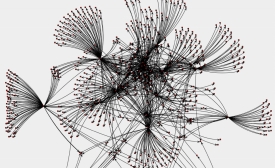digital diplomacy
As ISIS make gains in Iraq and declare an Islamic caliphate, media activists embedded along the front lines and their global support networks, the media mujahedeen, valorize their achievements in HD video and Hollywood film style posters which are distributed via social media.

How public diplomats can counter the online presence of media mujahedeen.
Over the past week the hashtag #GazaUnderAttack has been used hundreds of thousands of times, often to distribute pictures claiming to show the effects the airstrikes. Some of the images are of the current situation in Gaza, but a #BBCtrending analysis has found that some date as far back as 2009 and others are from conflicts in Syria and Iraq.
Despite the encouraging news that 63 girls and women have reportedly escaped the grips of Boko Haram, the militant Islamic group still holds the more than 200 schoolgirls it kidnapped in April captive. Meanwhile, in Chibok, the home of the schoolgirls whose April 14 kidnapping by the group sparked off the #bringbackourgirls campaign, things have not improved.
A man claiming to be the self-appointed caliph of the Islamic State jihadist group made what is thought to be his first taped appearance in a video that circulated on social media Saturday. Previously there were only two known images of the notoriously elusive Abu Bakr Al Baghdadi.
Prime Minister Narendra Modi has permitted Twitter unprecedented access to his administration in a drive to put social media at the heart of government, the US Internet company said. Modi deployed an army of supporters over Twitter and Facebook during his successful election campaign.

An overview of CPD's most popular blogs last month on topics ranging from Iranian soccer diplomacy to Turkey's Armenian initiative.
Twitter has become an indispensable diplomatic networking and communication tool. According to the new study Twiplomacy, more than half of the world’s foreign ministers and their institutions are active on the social networking site. Here are five lessons from our world leaders on Twitter.







